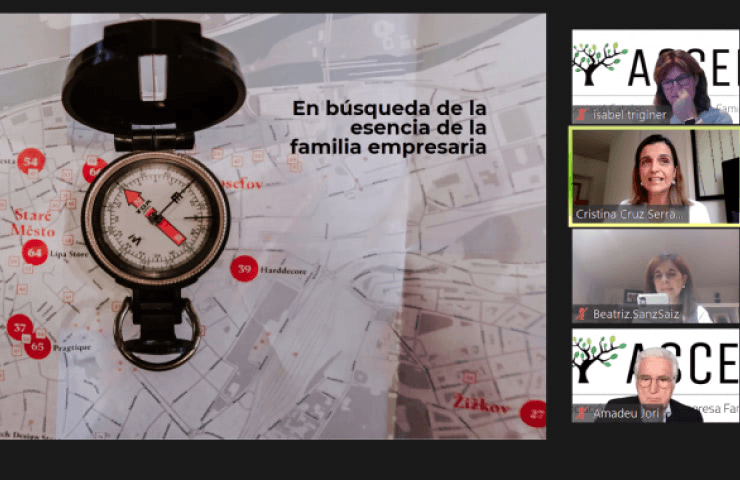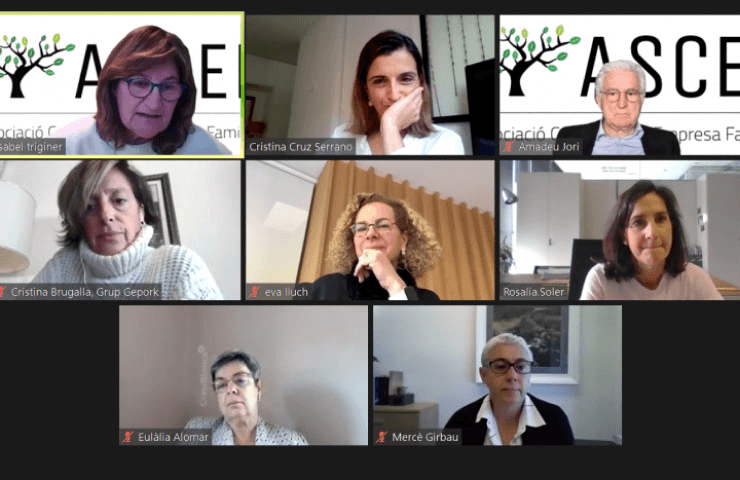A Virtual Meeting on Innovation in Family Businesses

IE Center for Families in Business participated in a virtual meeting on innovation in family businesses organized by the Catalan Association of Family Businesses (ASCEF) with the support of EY.
The event was inaugurated by Isabel Triginer and Amadeu Jori, both representatives of ASCEF. Then, the session began with a presentation led by Cristina Cruz, Director of the IE Center for Families in Business.
Currently, all companies suffer from the challenge of digitalization and innovation, but what makes a family business different and how does it affect its innovation? During the presentation, Cristina invited us to reflect on how the challenge of innovation changes from a family business’ perspective versus a non-family business’.
According to Professor Cruz, three characteristics define the essence of a family business and affect its ability to innovate:
- They are shareholders with concentrated and undiversified assets. “The more concentrated the wealth, the higher the perceived risk and the lower the company’s willingness to innovate”.
- Family shareholders are averse to losing control, which leads them to be less likely to get into debt and, therefore, less likely to open their capital to external shareholders, which limits the predisposition to innovate.
- Shareholders have objectives that go beyond economic ones. Contrary to the two previous characteristics, the importance that the family gives to objectives such as preserving the legacy, gives the company a long-term vision that favours innovation.
Thus, the family business has unique features that favour and inhibit innovation at the same time. The challenge is therefore how to enhance the amplifying features of innovation while mitigating the effect of the factors that limit it.
According to Professor Cruz, family businesses that successfully manage their innovation processes:
- Have a strategy of diversification of family assets that reduces risk exposure.
- Follow a niche strategy, seeking not to scale but to create added value.
- Innovate from tradition, that is, they follow incremental innovation processes based on their competitive advantages
- Rely on the new generations as a source of entrepreneurship for the business family
After Cristina’s inspiring presentation, there was a roundtable moderated by Rosalía Soler, Audit Partner at EY. The roundtable included representatives from family businesses that have been able to innovate their business models: Mercè Girbau, Chairman & CEO at Girbau Group; Eulàlia Alomar, Executive Director at Creu Blanca Group; Eva Lluch, Co-owner of Lluch Essence S.L. & Lluch Essence S.A.S.; Cristina Brugalla, Head of Innovation at Grup Gepork and Vanesa Martinez Chamorro, CEO at Grupo Carinsa.

